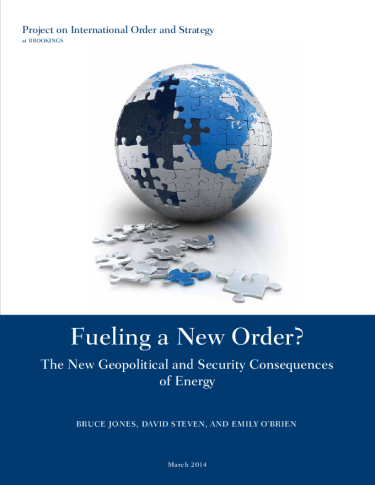The paper Fueling a New Order? The New Geopolitical and Security Consequences of Energy examines impacts of the major transformation in international energy markets that has begun.
The United States is poised to overtake Saudi Arabia and Russia as the world’s largest oil producer and, combined with new developments in natural gas, is on track to become the dominant player in global energy markets. Meanwhile, China is in place to surpass the United States in its scale of oil imports, and has already edged out the U.S. in carbon emissions. These changes have profound geopolitical consequences, including in terms of security relations among the world’s top powers. Two things are clear: that these changes are strengthening America’s hand in the world; and that changes in global energy production and consumption are increasingly exposing the emerging powers to risks.


